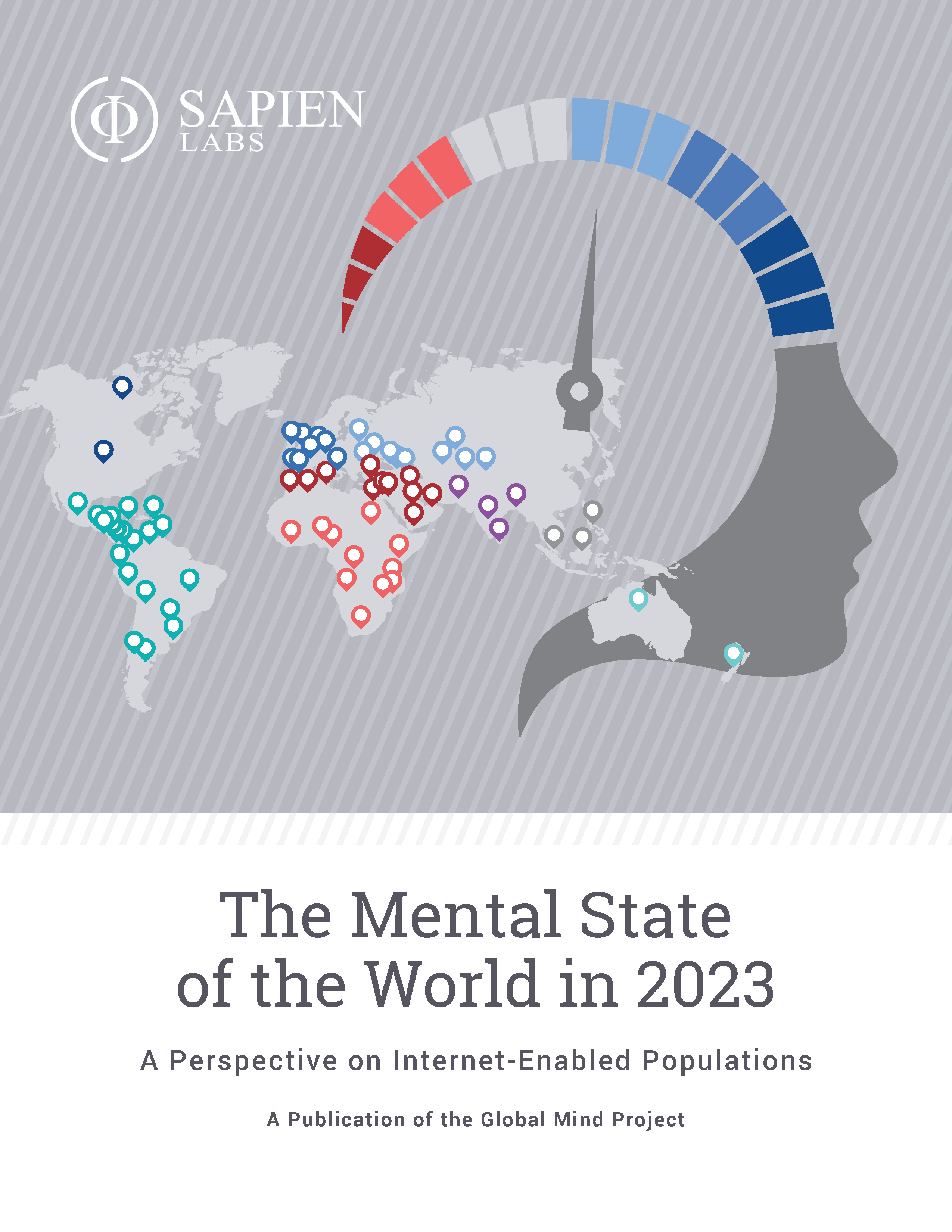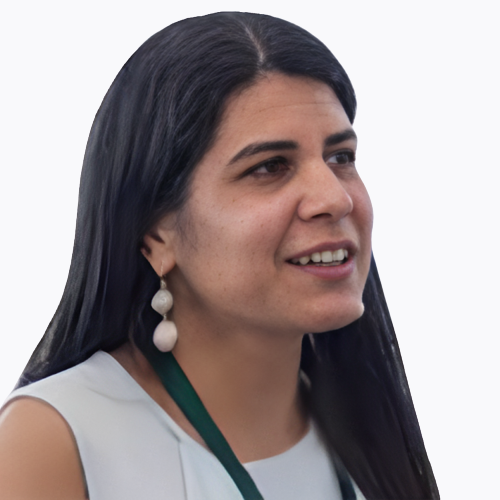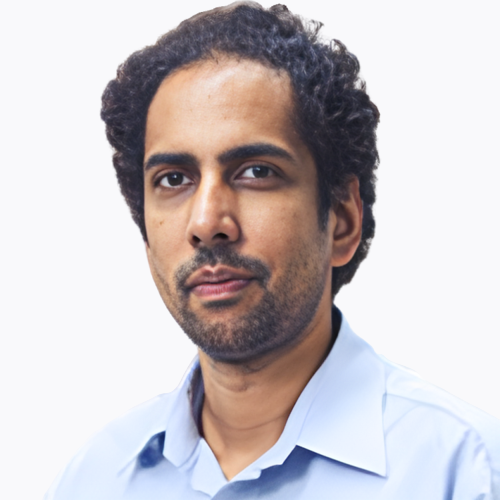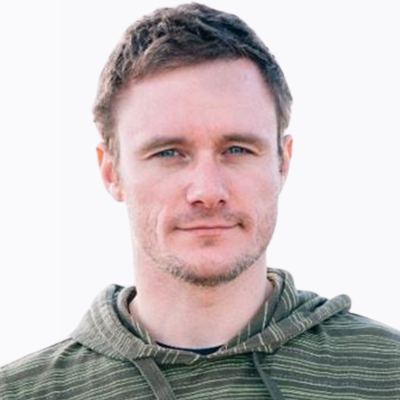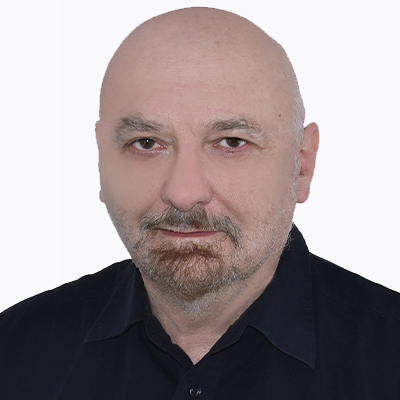Our mental wellbeing and functional capability is evolving as our social, technological and cultural environment changes, in ways that we don’t fully understand. The Global Mind Project (previously the Mental Health Million Project) seeks to track and understand this evolving relationship to inform the future health and wellbeing of society.
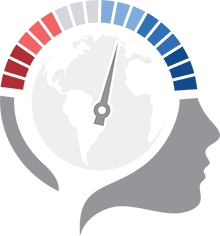
The Global Mind Project uses responses to the MHQ assessment, which is free and anonymous and provides an email report of scores with specific recommendations.
THE PROJECT
The project has created the world’s largest database of comprehensive mental health profiles along with demographics, lifestyle and life experience factors of the Internet-enabled population.
These data are being used to:
- Map the wellbeing and functional capability of people and populations around the globe.
- Understand the root causes behind recent trends of declining mental health.
- Deliver preventative solutions that shift the needle on mental health.
THE DATABASE
The database now contains profiles of over 1 million internet-enabled people across 71+ countries and 14 languages, along with demographics, lifestyle and life experience factors. 2000+ new profiles are added each day. Its dynamic and agile design allows rapid probing of emerging trends.
HOW OUR DATABASE IS DIFFERENT
- LARGE SCALE
- DYNAMIC & REAL-TIME
- GLOBAL & MULTILINGUAL
- COMPREHENSIVE
- INCLUDES LIFE CONTEXT
- EMERGING TRENDS
RESEARCHER HUB
The database is freely available to researchers in academia, nonprofit and government. Visit our Researcher Hub to find out more and request access to the data.

INVESTIGATE THE SOCIAL DETERMINANTS OF HUMAN WELLBEING

UNDERSTAND THE SPECTRUM OF HUMAN WELLBEING PROFILES IN THE GENERAL POPULATION

TRACKING TRENDS IN HUMAN WELLBEING AROUND THE GLOBE AND OVER TIME
MENTAL STATE OF THE WORLD REPORT 2023
The Mental State of the World report for 2023 includes comparisons of:
- 71 countries and 13 languages
- Trends across geography, language and age groups
Cite this report as:
Newson JJ, Sukhoi O, Taylor J, Topalo O, and Thiagarajan TC, Mental State of the World 2023, Sapien Labs, March 2024
Help us accomplish our goals
The Global Mind Project is a nonprofit effort and we rely on your support to help us reach a larger audience and to make the results more widely available to the public and policy makers.

Donate
Support us to reach our dataraising goals and build data visualizations to share outcomes.
Donate
Advisory Committee
The Global Mind Project is governed by an academic advisory committee that makes determinations on controls and mechanisms around privacy, periodic changes to questions that can aid in the utility of the data, and determination of geographic and demographic focus. The committee is currently composed of:
Dr. Brandon Kohrt
Associate Professor of Psychiatry and Behavioral Sciences, George Washington University, USA
Dr. Helen Christenson
Director and Chief Scientist, Black Dog Institute, Sydney Australia
Dr. Pim Cuijpers
Full Professor, Faculty of Behavioural and Movement Sciences, Clinical Psychology, VU University Amsterdam, Netherlands
Dr. Eiko Fried
Associate Professor of Clinical Psychology, Leiden University, Netherlands
Dr. Vikram Patel
Professor, Department of Global Health and Population, Harvard University, USA and Adjunct Professor and Joint Director, Centre for Chronic Conditions and Injuries, Public Health Foundation of India, India
Dr. Josh Seidman
Chief Research and Knowledge Officer, Fountain House
Population Views on Mentalog
Carousel title
Is symptom-based diagnosis of mental health disorders doing more harm than good?
We need to abandon the conventional way of diagnosing mental health disorders by symptoms and...
Gender Gaps in Mental Wellbeing
Nonbinary adults face challenges to mental wellbeing, research shows. The American Psychiatric...
The Powerful Ways that Physical Activity can Improve Mental Health
Physical exercise is critical for our mental health and wellbeing. Data from the Mental Health...
MHQ Highlights Gender Differences in Mental Health
Data from the Mental Health Million Project sheds light on the gender differences in mental health....
Using Population Data to Impact Mental Health
Understanding of population-level data of mental health and wellbeing can shape public policy and...
What is our Collective Mental Wellbeing?
The Mental Health Quotient gives us a insight into the full spectrum of mental health and...
Mental Health Issues Rising in Young Adults
Young adults are more likely to experience challenges to their mental health and wellbeing. What...


